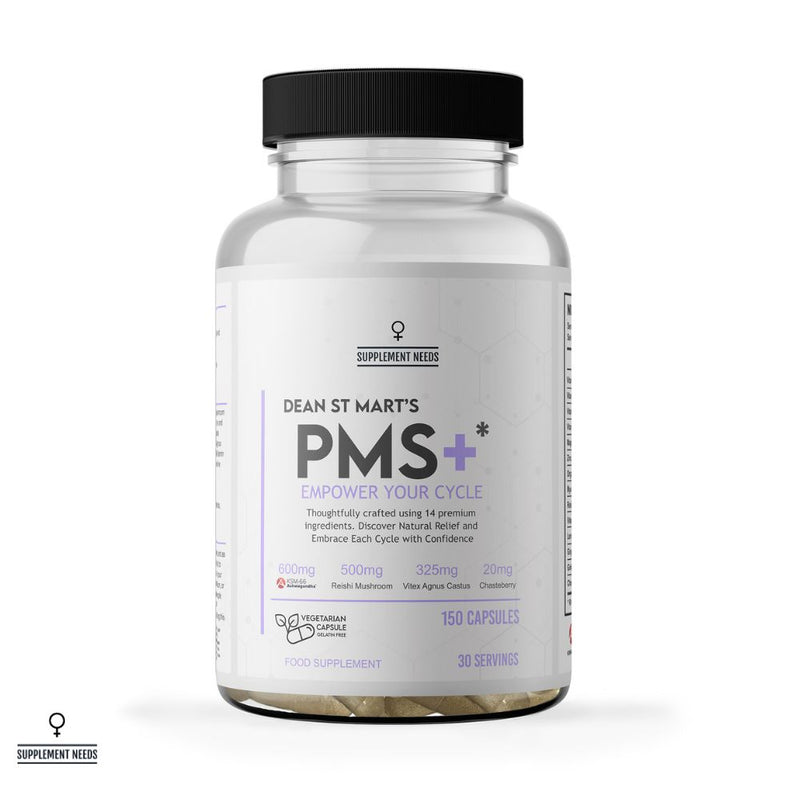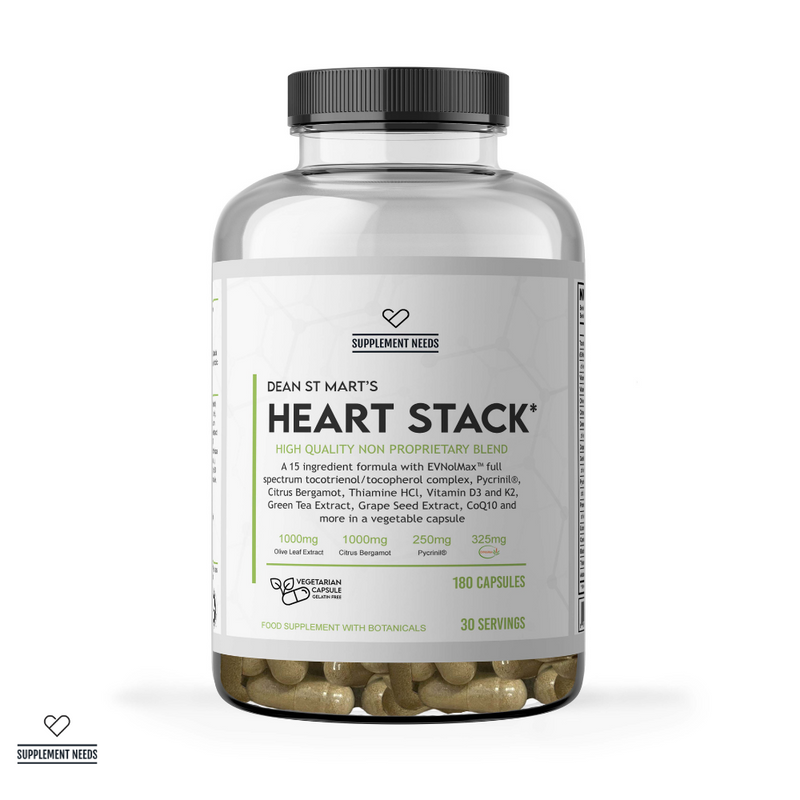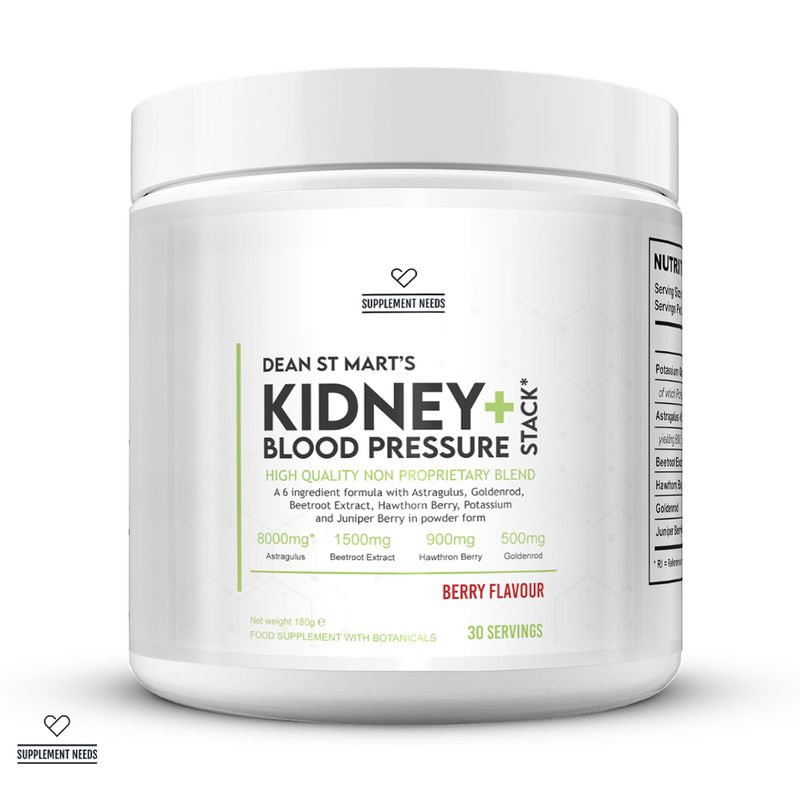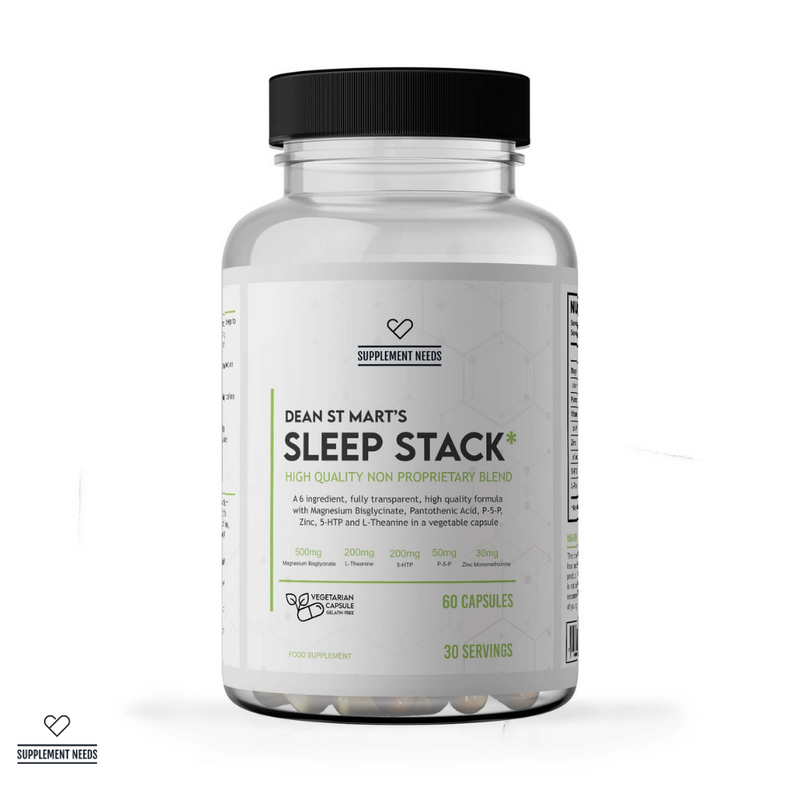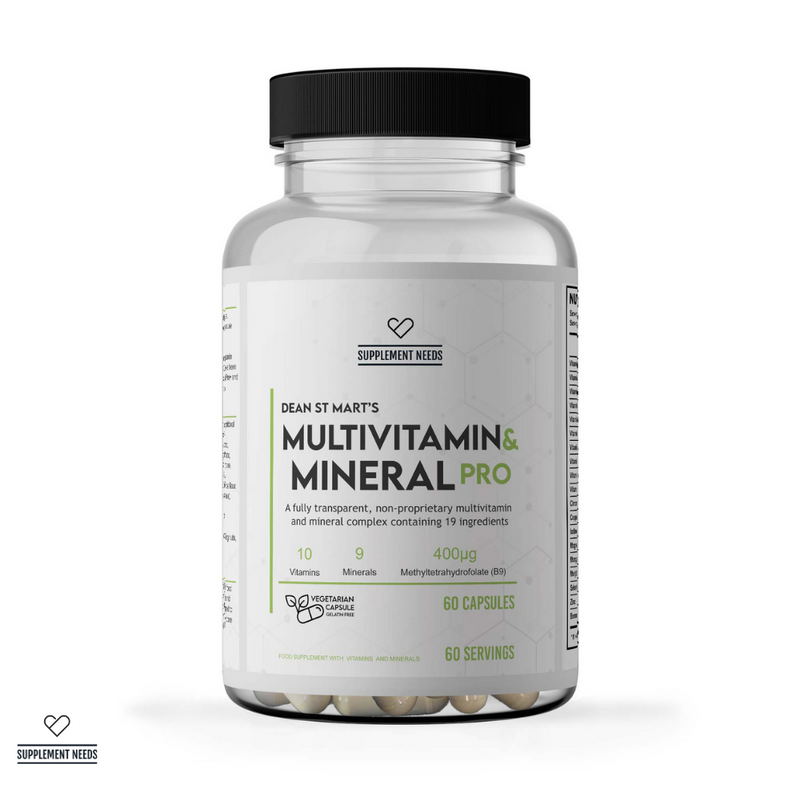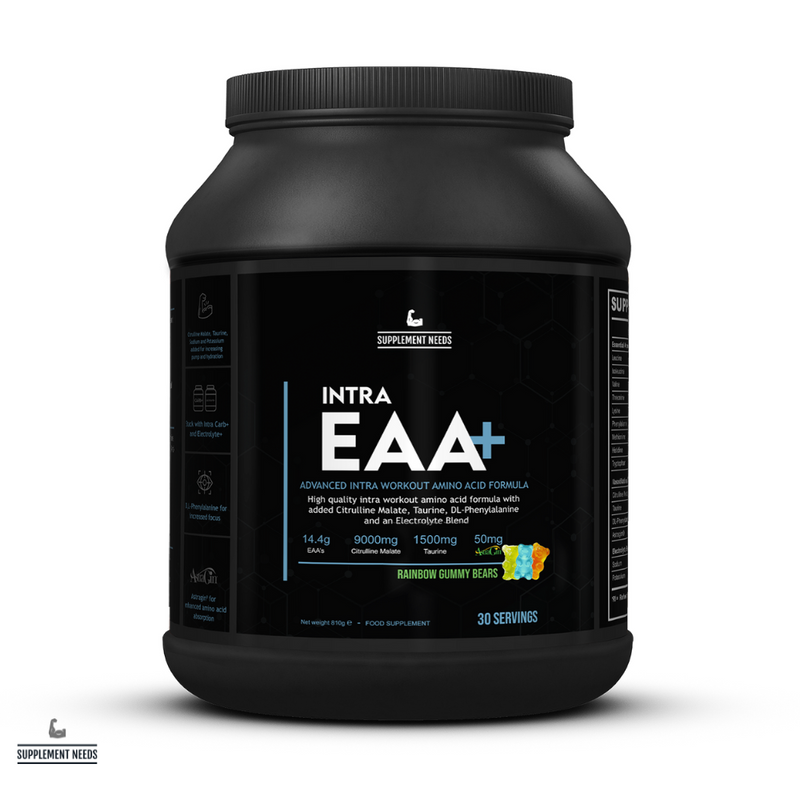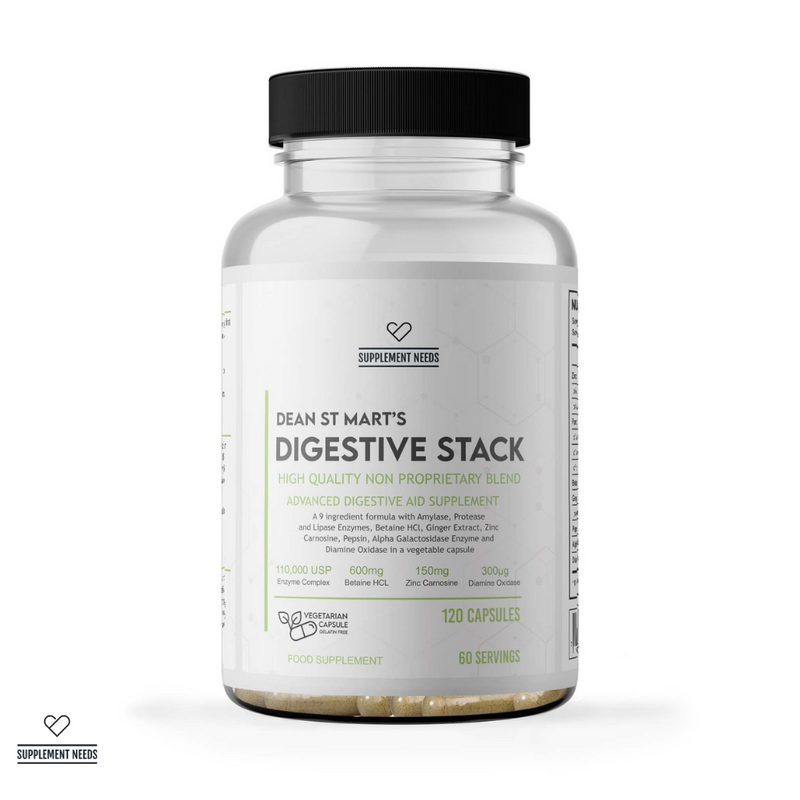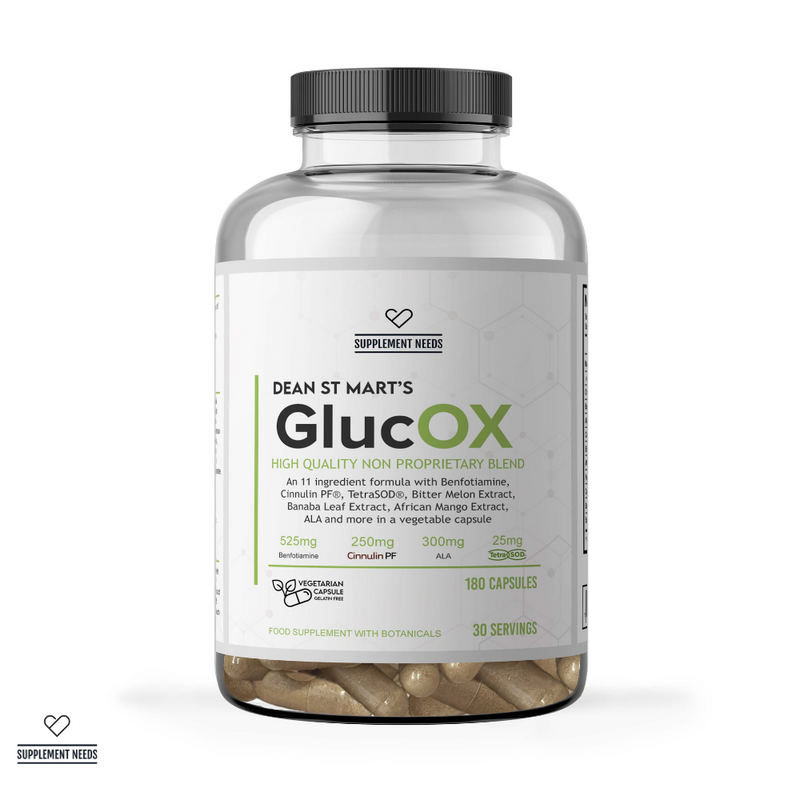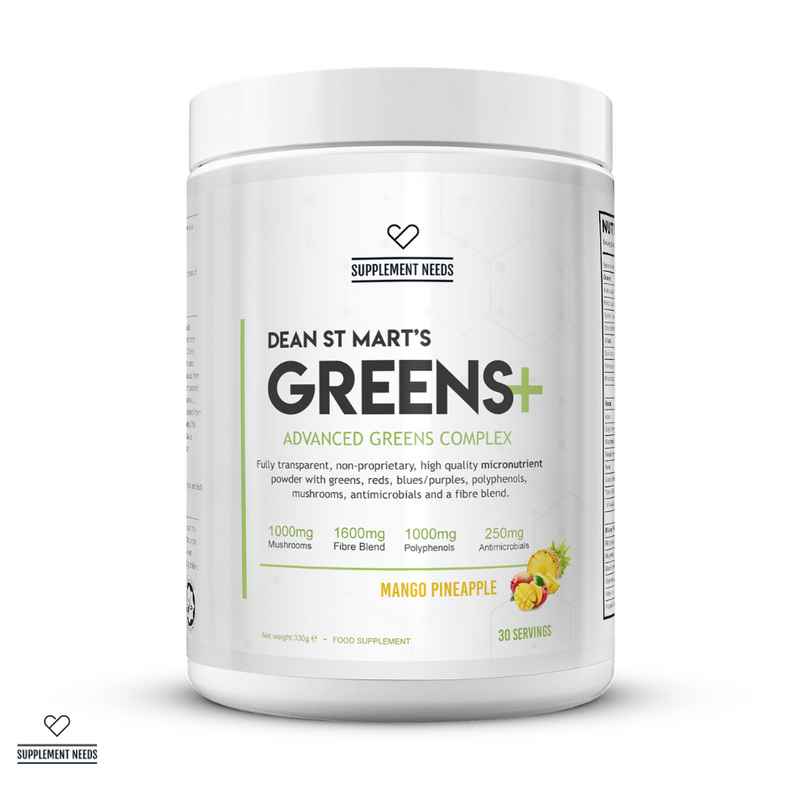Feeling tired? You may well be, given that 74% of UK adults reported a decline in their sleep quality over the past 12 months1. The key to solving a lack of sleep is improving your sleep hygiene. But, what exactly is it? And, how can you improve it? The Supplement Needs team investigates…
What is sleep hygiene?
Whilst the term ‘sleep hygiene’ doesn’t have a universally agreed upon medical definition, there is a relatively large consensus amongst researchers that sleep hygiene can be considered as ‘a set of behavioural and environmental recommendations intended to promote healthy sleep’2.
We appreciate that may seem a little abstract, so let’s break it down.
By ‘behavioural’ recommendations, researchers are referring to the habits you can change and adopt that will improve your chances of going to, and staying, asleep.
‘Environmental’ recommendations refer to those physical conditions and settings that can be altered to improve your chances of going to, and staying, asleep.
Put more succinctly, sleep hygiene refers to those things you can change that will improve the amount and quality of your sleep.
Later in this article, we’ll explore the various behaviour and environmental changes you can make to improve your ‘sleep hygiene’.
However, first, let’s take a deep dive into sleep and its mechanisms…
What is sleep?
This may sound like a question with a rather obvious answer - but, have you ever really pondered it?
What exactly is sleep? And, how does it work? It’s surprisingly more complex than you may initially realise.
Studies have defined sleep as ‘an active state of unconsciousness produced by the body where the brain is in a relative state of rest and is reactive primarily to internal stimulus’3.
Other - similar - definitions, consider sleep to be characterised by ‘changes in brain wave activity, breathing, heart rate, body temperature, and other physiological functions’4.
Okay, that’s fairly straightforward. Sleep is a period of reduced activity, with a decreased responsiveness to external stimuli, and is easily reversed (in contrast to other forms of unconsciousness such as hibernation or coma).
Note - at this point, we’d like to highlight that sleep is considered to be an active state of unconsciousness. Contrary to the belief of some people, you don’t merely ‘switch off’. Instead, your body’s core metabolic processes continue. Thus, some people are surprised to find that during a period of seven hours of sleep, a person weighing nine stone can burn around 266 calories (which is roughly equivalent to a glazed ring donut)5.
So, that’s sleep loosely defined. But, and here we come to a widely debated point, why do we sleep? What purpose does sleep serve?
Why we sleep
Why exactly do we need to sleep? It’s a question which continues to be the focus of academic debate, with competing theories jostling to explain something that all of us (hopefully) do every evening.
However, of all the competing theories, there are four which have gained the most attention.
The inactivity theory of sleep
This theory stretches back to the very dawn of humanity. Back to the days when the very first Homo sapiens were far from being the apex predators we are today.
Instead, Homo sapiens was, like many other faunae, subject to predation.
As a result, the inactivity theory of sleep (also known as the evolutionary theory of sleep, or the adaptive theory of sleep), postulates that the earliest humans slept at night when they were less likely to face attack or become injured. Over time, humans that slept at night developed an evolutionary and reproductive advantage over those that did not.
Comparative research of animals adds credence to this theory, with animals with many natural predators sleeping at night and for shorter lengths of time6.
Critics of this theory argue that whilst it does explain why you sleep at night, it doesn’t explain why we sleep per se.
The energy conservation theory of sleep
This theory follows a similar evolutionary lineage to the inactivity theory, in that it postulates that ‘the main function of sleep is to reduce a person’s energy demand during part of the day and night when it is least efficient to hunt for food’7.
That the body’s metabolism is decreased by up to 10% during sleep adds further support to this theory. Other studies8 suggest that eight hours of sleep can produce daily energy savings of 35% (over complete wakefulness), further reinforcing this theory.
The restorative theory of sleep
Ask many people why we need to sleep, and they’re likely to say something that echoes the main proposition of the restorative theory of sleep.
This theory of sleep (also known as the repair restoration theory of sleep) suggests that we sleep so that our bodies can ‘repair and replete cellular components necessary for biological functions that become depleted throughout an awake day’9.
It’s a theory which has been bolstered by further research in recent years. For example, one study10 in 2013 suggested that sleep drives metabolite clearance from the brain - a.k.a. sleep allows the brain to perform ‘housekeeping’ duties.
In addition to providing a restorative function to the brain, it is speculated - under the restorative theory of sleep - that sleep ‘may be related to a defence against oxidative stress’11.
Researchers have also suggested12 that sleep contributes to cellular repair, with muscle repair, tissue growth, protein synthesis and the release of important growth hormones occurring during sleep.
The brain plasticity theory of sleep
Another theory for why we sleep suggests we do so primarily for the brain’s benefit. Sleep allows for ‘neural reorganisation’ and growth of the brain’s form and function13. Further strength is added to this theory by the strong link between brain development and sleep in infants (with babies needing to sleep up to 14 hours per day)14.
A closely related theory (known as the information consolidation theory of sleep) argues that we sleep so that our brains may process information that has been acquired throughout the day15. This theory also suggests that sleep helps us to ‘cement’ information into long-term memory.
These are the four most common theories that attempt to explain why we sleep. However, it’s important to note that no single theory has yet emerged as the definitive explanation. The reality is that it’s likely to be a combination of these theories that explain the mystery of sleep.
The mechanisms of sleep
So far we’ve defined what sleep is and explored some theories as to why we must sleep. But, how does sleep work? As we’ve already alluded to, sleep is a far more complex process than many people realise.
But, developing an acute understanding of the mechanisms behind sleep plays an important role in improving your sleep hygiene; so, that’s exactly what we’ll do now - explore the mechanisms of sleep.
The stages of sleep
If you’ve ever watched the movie Inception, then you’ll be aware that the stages of sleep can sometimes be characterised as ‘layers’. You’ll probably also be aware of the phrases ‘deep sleep’ and ‘light sleeper’.
These are all popular lay terms to explain the complex process of sleep.
In more formal terms, sleep can - at the top level - be divided into two stages; Non-REM sleep and REM sleep. REM stands for rapid eye movement and is characterised by random rapid movement of the eyes, low muscle tone throughout the body (i.e. your muscles and therefore limbs are ‘floppy’).
In total, between REM sleep and non-REM sleep, your body will cycle through four stages, with non-REM sleep accounting for around 80% of your complete period of sleep. These are as follows:
- Stage 1: non-REM sleep.
- Stage 2: non-REM sleep.
- Stage 3: non-REM sleep.
- Stage 4: REM sleep.
Your body will ‘cycle’ through each of these four stages multiple times per night. The research base suggests that the first of these cycles takes between 70 and 120 minutes. Subsequent cycles are estimated to last between 90 and 120 minutes. Thus, over the course of seven to nine-hours of sleep, your body will have gone through four to five of these cycles.
Below, we’ll explore what each of these stages involves.
Stage 1: non-REM sleep
You enter ‘stage 1’ when you first fall asleep, with your brain waves, heart rate, and eye movements slowing down.
You’ll likely be familiar with this stage of sleep as it's the stage at which you can still be easily awoken. This is where those aforementioned environmental factors can be important as part of your sleep hygiene.
Depending on individual physiological and psychological characteristics, this ‘stage 1’ will last between one and seven minutes16.
Stage 2: non-REM sleep
As you drift off, you ‘fall’ (there’s our Inception analogy again!) into the next stage of non-REM sleep.
At this point, if you were to be hooked up to an electroencephalogram (EEG) machine, your brain wave activity would demonstrate ‘sleep spindles and K-complexes’ (these are signs that you are progressing into ‘stable sleep’).
It is widely acknowledged by sleep researchers that this ‘stage 2’ initially lasts approximately 10 to 25 minutes - but will progress to occupy about 50% of your total sleep period.
At this point, you could still be awoken, but this would require ‘heavy stimulation’ e.g. being physically shaken awake.
As an aside, many researchers think that memory consolidation occurs during this ‘stage 2’ of sleep17.
Stage 3: non-REM sleep
At this point you’ll have dropped a level further into even deeper sleep. This stage will initially last between 20 and 40 minutes.
Stage 3 sleep will see your body’s muscles and eyes slowing down with concomitant reductions in your metabolism. It’s for this reason that stage 3 is viewed as the most ‘restorative’ part of the total sleep period. It’s at this point that your body will be flushing out metabolites from the brain, synthesising protein and conducting cellular repair etc.
If your brain was hooked up to an EEG machine during this stage, it would be demonstrating high-voltage, slow-wave frequencies.
Stage 4: REM sleep
Your body will finally reach the REM stage of sleep (usually after around 90 minutes). A number of distinct physiological activities occur once you reach REM sleep - the most notable being rapid movement of your eyes from side-to-side - which, of course, provides this stage of sleep with its name.
In addition to rapid-eye-movement, stage 4 will see elevated breathing, heart rate and brain wave activity.
Interestingly, REM sleep is considered to be the point at which dreaming occurs. This happens in tandem with ‘total body voluntary muscle paralysis (except for the extraocular muscles). This paralysis is thought to be a mechanism to prevent neural stimuli from dreams to manifest in actual muscular impulses during sleep’18.
In other words, your body effectively shuts down certain muscle groups to prevent you from physically ‘acting out’ your dreams. From an evolutionary standpoint this has a number of clear advantages.
If you were to be hooked up to an EEG during stage 4 REM sleep, scientists have found that your brain would exhibit ‘sawtooth waveforms’, with theta waves and slow, alpha waves present in a desynchronised pattern set.
The physiology of sleep
Okay, so we’ve seen what the different stages of sleep involve, but how does your body physiologically induce sleep?
Like many other aspects of sleep, there remains much debate and contention. However, there are some widely accepted processes. Let’s take a look at the parts of the body that contribute towards sleep in turn.
The hypothalamus
A tiny, peanut-sized structure that sits deep within your brain, the hypothalamus (within which is the suprachiasmatic nucleus) acts as the ‘control centre’ for sleep19.
That’s because the clusters of cells that make up the hypothalamus receive information about light exposure directly from your eyes. Based upon this information, the hypothalamus helps to regulate your body’s circadian rhythms. These circadian rhythms dictate multiple processes within the body - one of which is sleep.
The brain stem
The next part of the body that plays a role in sleep is the brain stem. Consisting of the pons, medulla, and midbrain, the brain stem works in conjunction with the hypothalamus to produce a chemical known as GABA20.
GABA - Gamma-Aminobutyric Acid - is an inhibitory neurotransmitter. The clue to its function is in its name, as GABA inhibits the activity of the arousal centres in the hypothalamus and brain stem.
Note - the brain stem also plays an important role within REM sleep - helping to induce total body voluntary muscle paralysis we mentioned earlier (so we don’t ‘act out’ our dreams whilst in REM sleep).
The thalamus
Next up we have the thalamus. Sitting above the midbrain, the thalamus plays the role of a relay mediating between your senses (sight, sound etc) and the cerebral cortex. The cerebral cortex is the outer covering of the brain and both processes information and converts information from short to long-term memory.
During sleep, the thalamus is a rather Janus-like figure. During non-REM sleep, the thalamus becomes quiet, playing less of a ‘relay’ function and allowing your brain to tune out the external stimuli. However, during REM sleep, the thalamus sparks into life, sending the cerebral cortex the images and sounds that fill our dreams21.
The pineal gland
Characterised by the occult writer Manly P. Hall as the ‘Eye of God’, the pineal gland has long been associated with the brain, sleep and dreams.
But, what does it actually do in physiological terms?
A small pea-shaped structure that is located within the brain’s two hemispheres, the pineal gland’s primary function is to ‘receive and convey information about the current light-dark cycle from the environment via the production and secretion of melatonin cyclically at night’22.
In less abstract terms, it’s the job of the pineal gland to produce melatonin. It does this when it receives signals from the suprachiasmatic nucleus (SCN) (which sits within the hypothalamus). In other words, when the SCN detects a lowering of light levels, it sends a signal to the pineal gland to begin production of melatonin.
Why is this important? Because, melatonin is the key sleep hormone. Whilst scientists still remain unclear on all the effects of melatonin on the body, it is agreed that melatonin helps regulate your body’s circadian rhythms - in particular your sleep-wake cycle23.
We could crudely characterise melatonin as being the hormone that induces sleep.
The pineal gland produces melatonin via a complex process which begins with the postganglionic fibres (effectively nerve fibres that connect neuron cell bodies in the peripheral nervous system to the pineal gland). As the pineal gland receives inputs from these postganglionic fibres noradrenaline is released whilst the production of cyclic AMP (Cyclic Adenosine Monophosphate) is increased. In turn, these actions lead to the release of AANAT (Arylalkylamine N Acetyltransferase) - AANAT being integral to the production of melatonin24.
We appreciate that we’re getting very technical here. So, let’s think of it in simpler terms. The production of melatonin by the pineal gland begins with tryptophan (a naturally occurring amino acid), which, through a cascade of enzymatic reactions, becomes melatonin (with serotonin also produced along the way).
The biosynthesis of serotonin and melatonin looks like this:
- Tryptophan (which must be sourced by the body exogenously from foodstuffs) 👇
- 5-Hydroxytryptophan (5HTP) 👇
- Serotonin (5-Hydroxytryptamine, 5HT) 👇
- N-Acetylserotonin 👇
- Melatonin
This process of hydroxylation, decarboxylation and acetylation results in the formation of melatonin that is then released by the pineal gland into the bloodstream where it goes on to penetrate body tissues25.
Whilst those are the main parts of the body involved in the physiological process of sleep, there are other parts that contribute. These include the basal forebrain - which is located near the front and bottom of the brain - that promotes sleep and wakefulness. It is hypothesised that the basal forebrain cholinergic nuclei (BFCN) release adenosine. In turn, it is hypothesised that the subsequent accumulation of adenosine inhibits these neurons, allowing sleep-active neurons to become active26.
Note - one of the reasons that caffeine can be so counterproductive to sleep hygiene is because it blocks the actions of adenosine.
Other parts of the brain that are thought to contribute to the sleep process include the midbrain which acts as an ‘arousal system’. Likewise, the amygdala (an almond-shaped structure within the brain) is thought to contribute to REM sleep27.
The potential health impacts of sleep deprivation
Hopefully by now it’s clear that sleep is a complicated - and to an extent, only partially understood - process.
Yet, it’s hugely important to your overall health and wellbeing.
And, despite its importance, large swathes of the UK population have some sort of problem with sleep. Consider the following facts:
- One in every three people in the UK are affected by insomnia28.
- 200,000 working days are lost to insufficient sleep every year29.
- Almost one in five people (in the UK) aren’t getting enough sleep30.
It’s clear that sleep deprivation (to a greater or lesser extent) is a widespread problem for those of us who reside in the UK.
But, aside from feeling tired and less productive, studies31 have shown that chronic sleep deprivation can result in a range of negative health outcomes. We’ll explore these negative health outcomes below.
Cardiovascular disease
A chronic lack of sleep has been linked with the development of cardiovascular disease, with one study concluding that ‘sleep and sleep disorders are implicated in cardiometabolic disease risk32’.
A recent literature view33 also found links between sleep duration and hypertension, coronary heart disease, and diabetes mellitus. Interestingly, this same literature review also suggested that the incidence between sleep duration and the incidence of coronary heart disease is U-shaped - meaning both too little and too much sleep could be potential risk factors for the development of cardiovascular issues.
Obesity and diabetes
Chronic sleep deprivation has also been linked by a plethora of researchers to the development of obesity and diabetes.
More specifically, studies have pointed towards a link between sleep deprivation and metabolic abnormalities. One study bluntly summarised the association as follows; ‘insufficient sleep and sleep disorders have been identified as novel and important risk factors for the development of diabetes’34.
Other studies have come to the positive conclusion that ‘Treatment of sleep disorders has the potential to improve glucose metabolism and energy balance’35.
What was Public Health England (today, known as the UK Health Security Agency) highlighted in 2018 that adults who sleep fewer than six hours a night have a 13% higher mortality risk than adults who sleep at least seven hours36.
That all goes to say, sleep matters!
Cognitive impairment and decline
It’s fairly well known amongst the public that sleep deprivation is linked to cognitive impairment - think of it yourself, if you’ve barely had any sleep the night before, your thoughts are likely to be muddled the next day.
This commonly held belief is also substantiated by research showing that ‘The negative effect of both acute total and chronic partial SD (Sleep Deprivation) on attention and working memory is supported by existing literature’37.
However, aside from the impact of sleep deprivation on short-term cognitive performance, studies have also linked chronic sleep deprivation (especially in midlife) with more serious cognitive diseases such as dementia.
One particularly compelling study took a group of 7,959 participants and examined the association between sleep duration and incidence of dementia. The study concluded that ‘short sleep duration in midlife is associated with an increased risk of late-onset dementia’38.
A raft of other studies have reinforced the link between sleep deprivation and cognitive decline/disease. A review of observational and experimental studies concluded that ‘poor sleep is a risk factor for cognitive decline and Alzheimer's disease’39.
An even bigger pooled cohort study covering 28,756 individuals concluded that an ‘inverted U-shaped association’ exists ‘between sleep duration and global cognitive decline’40.
Depression
A lack of sleep can not only negatively impact your physical health, but your mental health too.
We’re not just talking about feeling a bit glum or irritable after a poor night’s sleep, either (but, of course, you want to avoid feeling like that too!).
Studies have suggested that chronic sleep deprivation can actually result in alterations in the neurotransmitter receptor systems (in particular, the serotonin-1A receptor and corticotropin-releasing hormone receptor systems) and neuroendocrine stress systems (hypothalamic-pituitary-adrenal axis)’41 which are similar to those changes reported in cases of major depression.
Having said that, it’s important to note that sleep deprivation and depression can have a bidirectional association. That is, sleep deprivation can cause depression, and depression can cause sleep deprivation.
This is suggested by studies that have found that ‘About three quarters of depressed patients have insomnia symptoms, and hypersomnia is present in about 40% of young depressed adults and 10% of older patients, with a preponderance in females’42.
In fact, such is the link between sleep deprivation and depression that ‘some researchers have suggested that a diagnosis of depression in the absence of sleep complaints should be made with caution’43.
How much sleep do I need?
By this point you’re probably more than aware that getting sufficient sleep is essential for maintaining your general health and wellbeing (as well as potentially increasing your QALYS - Quality Adjusted Life Years).
But, how much sleep should you be aiming for each night? What do the experts recommend?
The UK’s National Health Service (NHS) recommends that healthy adults require seven to nine hours of sleep per night44.
Research presented to the European Society of Cardiology Congress came to a similar recommendation, stating that between six and eight hours of sleep is the ideal amount to maintain cardiac health.
Their study consisted of a meta analysis of 11 individual studies covering more than one million adults. The study summarised its conclusions as follows:
‘The researchers found that both short and long sleepers had a greater risk of developing or dying from coronary artery disease or stroke. Compared to adults who slept six to eight hours a night, short and long sleepers had 11% and 33% greater risks, respectively, of developing or dying from coronary artery disease or stroke during an average follow-up of 9.3 years’45.
We can conclude from both this study and the NHS’s recommendations that a core aim of your sleep hygiene regimen shouldn’t just be to get to sleep, but to sleep for an appropriate duration.
How to improve your sleep hygiene
At the start of this article we defined sleep hygiene as being those behavioural and environmental factors that you can change in order to improve your likelihood of going to sleep, the duration of sleep, and the quality of that sleep.
So, what are those factors that can improve your sleep hygiene? Below, we’ve set out some of the key things that can potentially improve your sleep hygiene regime.
Establish a ‘going to bed’ routine
Having a bedtime routine isn’t just good for kids, it’s great for adults, too.
Ensuring that you go to bed at the same time each day can help optimise your circadian rhythm for sleep. Think of it kind of like setting your body’s natural ‘timer’. Over time, your body will naturally start to fall asleep and wake up much more easily.
Try not to sleep during the day
Unless you purposefully have to do this (e.g. you’re a shift worker), try not to sleep during the day.
If you do absolutely need to grab some sleep during the day, keep it to 30 minutes or less, otherwise you risk having a disturbed night’s sleep.
Get regular exercise
Ideally, you should try and exercise every day. Studies46 indicate that exercise can influence secretion of melatonin (that all important sleep hormone that we mentioned earlier).
The NHS suggests that as little as 30 minutes of exercise can be beneficial for sleep; however, it also suggests that you avoid vigorous exercise within three hours of your allotted sleep time.
Only use your bed for sleeping and sex
This is more of a qualitative, psychological suggestion - but some sleep therapists suggest avoiding using your bed for watching television, reading or using your smartphone. By only using your bed for sleeping and sex, it will help reinforce it as a place of rest in your mind.
Keep your bedroom dark, quiet and cool
As we saw earlier, during the earliest ‘stage 1’ part of the sleep cycle, you can be easily awoken. Especially by external stimuli such as excessive noise or light.
So, arguably one of the most effective things you can do to improve your sleep hygiene is to ensure your bedroom is appropriately lit, is neither too hot nor cold, and isn’t subject to unwanted noise.
Avoid stimulants
Coffee. Nicotine. Alcohol. These are just a few of the stimulants you should avoid before attempting to sleep.
Stimulants such as caffeine can interfere with important physiological mechanisms of sleep (for example, we saw above that caffeine can block the action of adenosine which plays an important role in the basal forebrain).
Consider taking a sleep supplement
We saw earlier that sleep is a very complex process which involves a range of physiological and hormonal responses.
It’s for this reason that some people choose to use a natural sleep supplement.
However, there’s an important distinction to be made here. There are both pharmacological supplements and natural supplements. Synthetically-produced sleep supplements can leave residual symptoms such as drowsiness, difficulty concentrating, and impaired memory.
To avoid those symptoms, a natural sleep supplement is recommended.
The best sleep supplements
The thing is, if you want to take a natural supplement to potentially aid your sleep hygiene, what should you take?
In many cases, it’s better to consider a multivitamin that combines multiple active ingredients (rather than a single compound such as melatonin).
Supplement Needs Sleep Stack
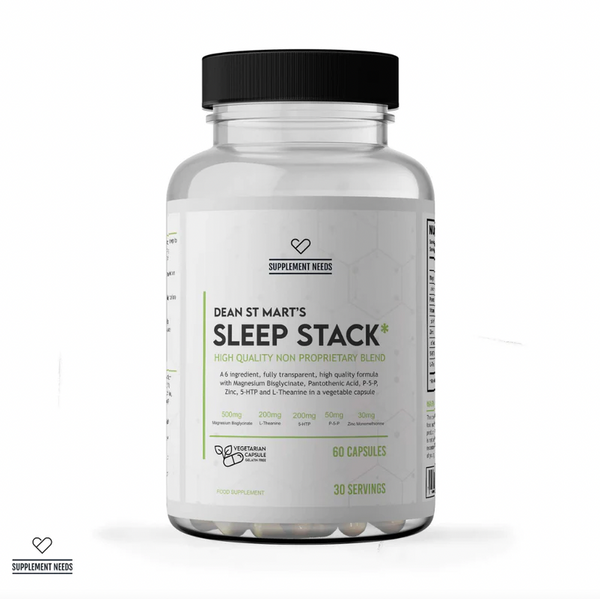
Designed to be the ultimate natural sleep supplement, the Supplement Needs Sleep Stack has been designed and formulated by Dr. Dean St Mart PhD.
Being a naturally-formulated supplement, Sleep Stack does not contain any sedative ingredients - meaning it won’t induce the kind of symptoms that pharmaceutical alternatives can do.
Instead, Sleep Stack contains 5-Hydroxytryptophan (from seed) at 200 mg per 2 capsule serving. As we saw earlier, 5-Hydroxytryptophan is a precursor agent to melatonin - that all important sleep hormone that we’ve talked so much about in this article.
But, that isn’t the only important ingredient within the Supplement Needs Sleep Stack. This supplement also contains 500 mg of Magnesium Bisglycinate (per 2 capsule serving).
As an important electrolyte, Magnesium can have a number of potential benefits, from maintaining heart rhythm to improving bone health (and more). However, Magnesium can also potentially contribute to healthy sleep.
Studies have found that Magnesium helps to activate your parasympathetic nervous system - which is the system in your body that helps you feel calm and relaxed47. Other studies48 have indicated that Magnesium plays an important role in the regulation of melatonin - which, as we’ve seen, is the important sleep hormone.
Magnesium has also been found49 to bind to those receptors in the body that produce GABA (Gamma-Aminobutyric Acid). As we saw earlier, GABA is an inhibitory neurotransmitter and helps to calm the activity of the arousal centres in the hypothalamus and brain stem - thus helping your nervous system to prepare for sleep.
Conversely, not having enough Magnesium in your body can interfere with your sleep - as demonstrated by studies on mice50.
In addition to 5-HTP and Magnesium, Sleep Stack has also been specifically formulated to include Vitamin B5 (as Pantothenic Acid at 500 mg per 2 capsule dose). Why? Because, Vitamin B5 can potentially aid AANAT push Serotonin to Melatonin - contributing to Melatonin production.
(As an aside, most people think most of the body’s melatonin is derived from sunlight exposure. The reality is that it's made from serotonin during our sleep).
Sleep Stack also includes L-Theanine (at 200 mg per 2 capsule serving) - which is an amino acid analogue of L-Glutamate and L-Glutamine. Various researchers have suggested that L-Theanine can reduce anxiety by both enhancing alpha-wave activity in the brain and increasing the synthesis of GABA51.
A number of studies5253 have also found a causal relationship between the ingestion of L-Theanine and subsequent feelings of drowsiness.
To round off the Sleep Stack, Dr. Dean has included Vitamin B6 (as Pyridoxine 5 Phosphate) at 50 mg per 2 capsule serving. Not only does Vitamin B6 aid in the production of melatonin, but some studies54 have found that it may potentially aid in dream recall, whilst still other studies55 have found that Vitamin B6 (in combination with other compounds) may potentially improve sleep quality.
The final major ingredient of the Supplement Needs Sleep Stack is Zinc (as Zinc Monomethionine at 30 gm per 2 capsule serving). To be more specific, we have included Zinc Monomethionine for methylation. Methyl donors come from S-Adenosyl-Methionine (SAMe) which fuels COMT to do its job - COMT being Catechol-o-methyltransferase - an enzyme involved in metabolising various catecholamine neurotransmitters, including dopamine and epinephrine56.
Zinc has been identified as a potential ‘modulator’ of sleep, with a review of studies finding that ‘zinc serum concentration varies with the amount of sleep’. Understandably - given this potential finding - a deficiency in Zinc has been linked by other studies to poor quality sleep.
To sum up, every single ingredient in Supplement Needs Sleep Stack was chosen to serve a specific purpose - there are no superfluous, needless ingredients!
Sleep support that’s trusted by the best
Sleep Stack is one of Supplement Needs’ most popular and sought-after products. And, that’s no surprise. Join some of the world’s leading athletes in adding Sleep Stack to your supplementation regime today.
Shop sleep supplements today
Disclaimer
The information on this website should not be used as a substitute for professional medical advice or care. If you have questions about your health, please contact your doctor.
References
1. Nuffield Health. The Healthier Nation Index [online]. Available at: https://www.nuffieldhealth.com/healthiernation (Accessed on 27th February 2024).
2. Irish L, Kline C, Gunn H, Buysse D, Hall M. The Role of Sleep Hygiene in Promoting Public Health: A Review of Empirical Evidence [online]. Available at: https://www.ncbi.nlm.nih.gov/pmc/articles/PMC4400203/ (Accessed on 27th February 2024).
3. National Library of Medicine: National Centre for Biotechnology Information. Physiology of Sleep [online]. Available at: https://www.ncbi.nlm.nih.gov/books/NBK482512/ (Accessed on 27th February 2024).
4. Harvard School of Medicine: Division of Sleep Medicine. Science of Sleep: What is Sleep? [online]. Available at: https://sleep.hms.harvard.edu/education-training/public-education/sleep-and-health-education-program/sleep-health-education-47 (Accessed on 27th February 2024).
5. Harvard Health Publishing. Calories burned in 30 minutes for people of three different weights [online]. Available at: https://www.health.harvard.edu/diet-and-weight-loss/calories-burned-in-30-minutes-for-people-of-three-different-weights (Accessed on 27th February 2024).
6. Ezenwanne EB. Current Concepts in the Neurophysiologic Basis of Sleep; a Review [online]. Available at: https://www.ncbi.nlm.nih.gov/pmc/articles/PMC3507109/ (Accessed on 27th February 2024).
7. National Library of Medicine: National Centre for Biotechnology Information. Physiology of Sleep [online]. Available at: https://www.ncbi.nlm.nih.gov/books/NBK482512/ (Accessed on 27th February 2024).
8. Schmidt M, Swang T, Hamilton I, Best J. State-dependent metabolic partitioning and energy conservation: A theoretical framework for understanding the function of sleep [online]. Available at: https://www.ncbi.nlm.nih.gov/pmc/articles/PMC5634544/ (Accessed on 27th February 2024).
9. National Library of Medicine: National Centre for Biotechnology Information. Physiology of Sleep [online]. Available at: https://www.ncbi.nlm.nih.gov/books/NBK482512/ (Accessed on 27th February 2024).
10. Xie L, Kang H, Xu Q (et. al.). Sleep Drives Metabolite Clearance from the Adult Brain [online]. Available at: https://www.science.org/doi/10.1126/science.1241224 (Accessed on 27th February 2024).
11. Siegel J. Clues to the functions of mammalian sleep [online]. Available at: https://www.ncbi.nlm.nih.gov/pmc/articles/PMC8760626/ (Accessed on 27th February 2024).
12. National Library of Medicine: National Centre for Biotechnology Information. Physiology of Sleep [online]. Available at: https://www.ncbi.nlm.nih.gov/books/NBK482512/ (Accessed on 27th February 2024).
13. Pace-Schott E, Spencer R. Sleep-dependent memory consolidation in healthy aging and mild cognitive impairment [online]. Available at: https://pubmed.ncbi.nlm.nih.gov/24652608/ (Accessed on 27th February 2024).
14. Tham E, Schneider N, Broekman B. Infant sleep and its relation with cognition and growth: a narrative review [online]. Available at: https://www.ncbi.nlm.nih.gov/pmc/articles/PMC5440010/ (Accessed on 27th February 2024).
15. Born J, Wilhelm I. System consolidation of memory during sleep [online]. Available at: https://link.springer.com/article/10.1007/s00426-011-0335-6 (Accessed on 27th February 2024).
16. National Library of Medicine: National Centre for Biotechnology Information. Physiology of Sleep [online]. Available at: https://www.ncbi.nlm.nih.gov/books/NBK482512/ (Accessed on 28th February 2024).
17. National Library of Medicine: National Centre for Biotechnology Information. Physiology of Sleep [online]. Available at: https://www.ncbi.nlm.nih.gov/books/NBK482512/ (Accessed on 28th February 2024).
18. National Library of Medicine: National Centre for Biotechnology Information. Physiology of Sleep [online]. Available at: https://www.ncbi.nlm.nih.gov/books/NBK482512/ (Accessed on 28th February 2024).
19. National Institute of Neurological Disorders and Stroke. Brain Basics: Understanding Sleep [online]. Available at: https://www.ninds.nih.gov/health-information/public-education/brain-basics/brain-basics-understanding-sleep (Accessed on 28th February 2024).
20. National Institute of Neurological Disorders and Stroke. Brain Basics: Understanding Sleep [online]. Available at: https://www.ninds.nih.gov/health-information/public-education/brain-basics/brain-basics-understanding-sleep (Accessed on 28th February 2024).
21. National Institute of Neurological Disorders and Stroke. Brain Basics: Understanding Sleep [online]. Available at: https://www.ninds.nih.gov/health-information/public-education/brain-basics/brain-basics-understanding-sleep (Accessed on 28th February 2024).
22. National Library of Medicine: National Centre for Biotechnology Information. Physiology of the Pineal Gland and Melatonin [online]. Available at: https://www.ncbi.nlm.nih.gov/books/NBK550972/# (Accessed on 28th February 2024).
23. National Centre for Complementary and Integrative Health. Melatonin: What You Need to Know [online]. Available at: https://www.nccih.nih.gov/health/melatonin-what-you-need-to-know (Accessed on 28th February 2024).
24. Masters A, Pandi-Perumal S, Seixas A, Girardin J, McFarlane S. Melatonin, the Hormone of Darkness: From Sleep Promotion to Ebola Treatment [online]. Available at: https://www.ncbi.nlm.nih.gov/pmc/articles/PMC4334454/ (Accessed on 28th February 2024).
25. Luboshizsky R, Lavie P. Sleep-inducing effects of exogenous melatonin administration [online]. Available at: https://pubmed.ncbi.nlm.nih.gov/15310501/ (Accessed on 28thj February 2024).
26. Blanco-Centurion C, Xu M, Murillo-Rodriguez E, Gerashchenko D, Shiromani A, Salin-Pascual R, Hof P, Shiromani P. Adenosine and Sleep Homeostasis in the Basal Forebrain [online]. Available at: https://www.ncbi.nlm.nih.gov/pmc/articles/PMC6673779/ (Accessed on 28th February 2024).
27. Corsi-Cabrera M, Velasco F, Rio-Portilla Y, Armony J, Trejo-Martinez D, Guevara M, Velasco A. Human amygdala activation during rapid eye movements of rapid eye movement sleep: an intracranial study [online]. Available at: https://pubmed.ncbi.nlm.nih.gov/27146713/ (Accessed on 28th February 2024).
28. NHS Inform. Insomnia [online]. Available at: https://www.nhsinform.scot/illnesses-and-conditions/mental-health/insomnia/ (Accessed on 28th February 2024).
29. Hafner M, Stepanek M, Taylor J, Troxel W, Van Stolk C. Why sleep matters - the economic costs of insufficient sleep [online]. Available at: https://www.rand.org/pubs/research_reports/RR1791.html (Accessed on 28th February 2024).
30. Mental Health UK. Sleep and mental health [online]. Available at: https://mentalhealth-uk.org/help-and-information/sleep/ (Accessed on 28th February 2024).
31. National Heart, Lung, and Blood Institute. What Are Sleep Deprivation and Deficiency? [online]. Available at: https://www.nhlbi.nih.gov/health/sleep-deprivation (Accessed on 28th February 2024).
32. Grandner M, Alfonso-Miller P, Fernandez-Mendoza J, Shetty S, Shenoy S, Combs D. Sleep: important considerations for the prevention of cardiovascular disease [online]. Available at: https://pubmed.ncbi.nlm.nih.gov/27467177/ (Accessed on 28th February 2024).
33. Nagai M, Hoshide S, Kario K. Sleep Duration as a Risk Factor for Cardiovascular Disease - a Review of the Recent Literature [online]. Available at: https://www.ncbi.nlm.nih.gov/pmc/articles/PMC2845795/ (Accessed on 28th February 2024).
34. Grandner M, Seixas A, Shetty S, Shenoy S. Sleep Duration and Diabetes Risk: Population Trends and Potential Mechanisms [online]. Available at: https://www.ncbi.nlm.nih.gov/pmc/articles/PMC5070477/ (Accessed on 28th February 2024).
35. Spiegel K, Tasali E, Leproult R, Van Cauter E. Effects of poor and short sleep on glucose metabolism and obesity risk [online]. Available at: https://pubmed.ncbi.nlm.nih.gov/19444258/ (Accessed on 28th February 2024).
36. UK Health Security Agency. Is lack of sleep affecting your work? [online]. Available at: https://ukhsa.blog.gov.uk/2018/01/30/is-lack-of-sleep-affecting-your-work/ (Accessed on 28th February 2024).
37. Alhola P, Polo-Kantola P. Sleep deprivation: Impact on cognitive performance [online]. Available at: https://www.ncbi.nlm.nih.gov/pmc/articles/PMC2656292/ (Accessed on 28th February 2024).
38. Sabia S, Fayosse A, Dumurgier J, Hees V, Paquet C, Sommerlad A, Kivimäki M, Dugravot A, Singh-Manoux A. Association of sleep duration in middle and old age with incidence of dementia [online]. Available at: https://pubmed.ncbi.nlm.nih.gov/33879784/ (Accessed on 28th February 2024).
39. Spira A, Chen-Edinboro L, Wu M, Yaffe K. Impact of Sleep on the Risk of Cognitive Decline and Dementia [online]. Available at: https://www.ncbi.nlm.nih.gov/pmc/articles/PMC4323377/ (Accessed on 28th February 2024).
40. Ma Y, Liang L, Zheng F. Association Between Sleep Duration and Cognitive Decline [online]. Available at: https://jamanetwork.com/journals/jamanetworkopen/fullarticle/2770743 (Accessed on 28th February 2024).
41. Al-Abri M. Sleep Deprivation and Depression [online]. Available at: https://www.ncbi.nlm.nih.gov/pmc/articles/PMC4318605/ (Accessed on 28th February 2024).
42. Nutt D, Wilson S, Paterson L. Sleep disorders as core symptoms of depression [online]. Available at: https://www.ncbi.nlm.nih.gov/pmc/articles/PMC3181883/ (Accessed on 28th February 2024).
43. Nutt D, Wilson S, Paterson L. Sleep disorders as core symptoms of depression [online]. Available at: https://www.ncbi.nlm.nih.gov/pmc/articles/PMC3181883/ (Accessed on 28th February 2024).
44. NHS. Insomnia [online]. Available at: https://www.nhs.uk/conditions/insomnia/ (Accessed on 24th February 2024).
45. European Society of Cardiology. Finding the sweet spot of a good night’s sleep: not too long and not too short [online]. Available at: https://www.escardio.org/The-ESC/Press-Office/Press-releases/Finding-the-sweet-spot-of-a-good-night-s-sleep-not-too-long-and-not-too-short (Accessed on 28th February 2024).
46. Kruk J, Aboul-Enein B, Duchnik E. Exercise-induced oxidative stress and melatonin supplementation: current evidence [online]. Available at: https://www.ncbi.nlm.nih.gov/pmc/articles/PMC8409271/ (Accessed on 28th February 2024).
47. Wienecke E, Nolden C. Long-term HRV analysis shows stress reduction by magnesium intake [online]. Available at: https://pubmed.ncbi.nlm.nih.gov/27933574/ (Accessed on 29th February 2024).
48. Durlach J, Pagès N, Bac P, Bara M, Guiet-Bara A. Biorhythms and possible central regulation of magnesium status, phototherapy, darkness therapy and chronopathological forms of magnesium depletion [online]. Available at: https://pubmed.ncbi.nlm.nih.gov/12030424/ (Accessed on 29th February 2024).
49. Poleszak E. Benzodiazepine/GABA(A) receptors are involved in magnesium-induced anxiolytic-like behaviour in mice [online]. Available at: https://pubmed.ncbi.nlm.nih.gov/18799816/ (Accessed on 29th February 2024).
50. Chollet D, Franken P, Raffin Y, Henrotte J, Widmer J, Malafosse A, Tafti M. Magnesium involvement in sleep: genetic and nutritional models [online]. Available at: https://pubmed.ncbi.nlm.nih.gov/11777170/ (Accessed on 29th February 2024).
51. Juneja L, Chu D, Okubo T, Nagato Y, Yokogoshi H. L-theanine - a unique amino acid of green tea and its relaxation effect in humans [online]. Available at: https://www.sciencedirect.com/science/article/abs/pii/S0924224499000448 (Accessed on 29th February 2024).
52. Dietz C, Dekker M. Effect of Green Tea Phytochemicals on Mood and Cognition [online]. Available at: https://pubmed.ncbi.nlm.nih.gov/28056735/ (Accessed on 29th February 2024).
53. Nobre A, Rao A, Owen G. L-theanine, a natural constituent in tea, and its effect on mental state [online]. Available at: https://pubmed.ncbi.nlm.nih.gov/18296328/ (Accessed on 29th February 2024).
54. Adventure-Heart D, Madden N, Delfabbro P. Effects of Vitamin B6 (Pyridoxine) and a B Complex Preparation on Dreaming and Sleep [online]. Available at: https://pubmed.ncbi.nlm.nih.gov/29665762/ (Accessed on 29th February 2024).
55. Garcia-Garcia C, Baik I. Effects of poly-gamma-glutamic acid and Vitamin B6 supplements on sleep status: a randomised intervention study [online]. Available at: https://www.ncbi.nlm.nih.gov/pmc/articles/PMC8155219/ (Accessed on 29th February 2024).
56. Qayyum A, Zai C, Hirata Y, Tiwari A, Cheema S, Nowrouzi B, Beitchman J, Kennedy J. The Role of the Catechol-o-methyltransferase (COMT) Gene Val58Met in Aggressive Behaviour, A Review of Genetic Studies [online]. Available at: https://www.ncbi.nlm.nih.gov/pmc/articles/PMC4759319/ (Accessed on 1st March 2024).
57. Cherasse Y, Urade Y. Dietary Zinc as a Sleep Modulator [online]. Available at: https://www.ncbi.nlm.nih.gov/pmc/articles/PMC5713303/ (Accessed on 29th February 2024).
58. Ji X, Liu J. Associations between Blood Zinc Concentrations and Sleep Quality in Childhood: A Cohort Study [online]. Available at: https://www.ncbi.nlm.nih.gov/pmc/articles/PMC4517024/ (Accessed on 29th February 2024).



